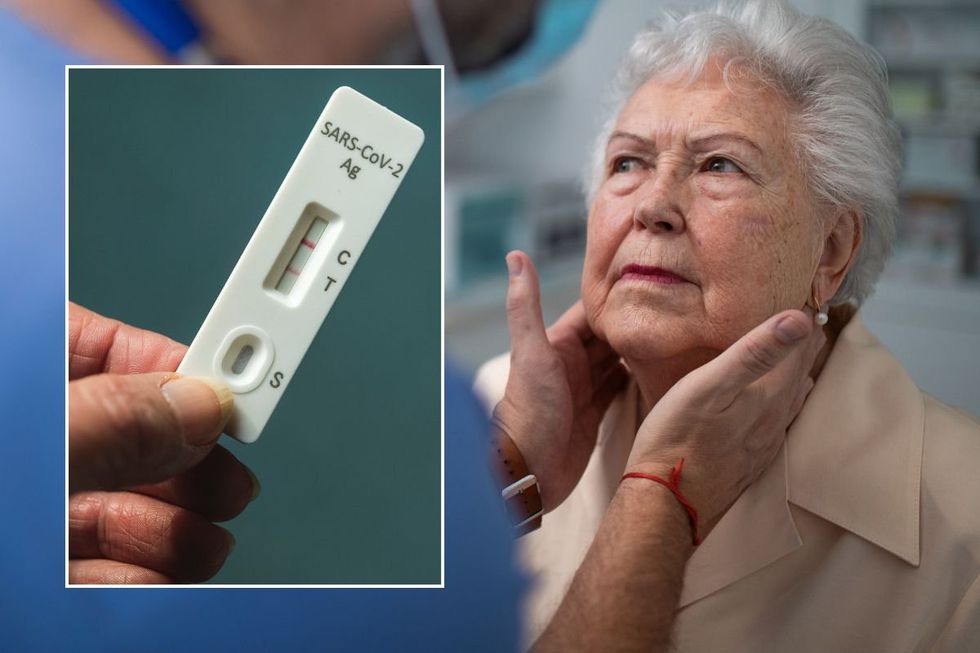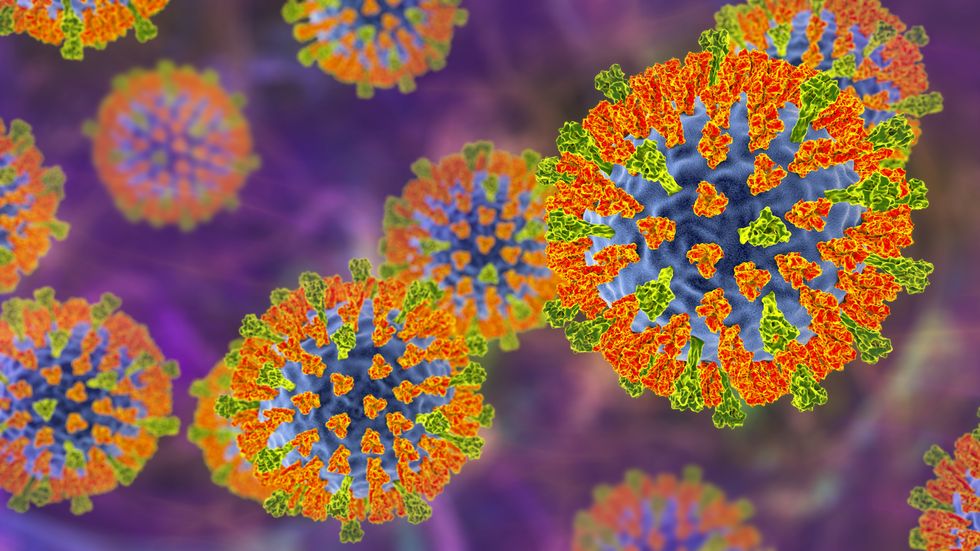Common cold or Covid? Experts weigh in on the key differences between the illnesses and their symptoms

It's becoming increasingly difficult to work out if a tickly throat means you've caught Covid or just picked up a seasonal bug
Don't Miss
Most Read
It's that time of year when everyone seems to be sniffling and coughing, whether you're on the tube, at the office, or just trying to enjoy a quiet evening at home.
But understanding what you're dealing with has never been more important, especially as Britain heads deeper into the colder months.
The latest variants of Covid causing concern are Stratus (XFG) and Nimbus (NB.1.8.1), both spreading rapidly across the UK.
But the symptoms of the virus can be frustratingly similar to those of the coronavirus, making it tough to tell the illnesses apart.

Anyone infected with Covid should see their GP if they're short of breath
|GETTY
Medical experts are now weighing in to help clear up the confusion by offering practical guidance on spotting the differences between these illnesses.
Symptoms
Both conditions can leave you with a blocked or runny nose, sneezing fits, coughing, and a sore throat. But there are some telling differences to watch out for.
Covid often brings fever, extreme tiredness, and body aches, while colds typically stick to your nose and throat.
The new variants also have their own quirks, as Stratus tends to cause voice hoarseness alongside exhaustion, while Nimbus brings what sufferers describe as a "razor-blade" sore throat plus stomach troubles like feeling sick and bloated.
Loss of taste and smell, once Covid's signature symptom, has become less common with these newer strains.
The timeline makes a big difference too, as cold symptoms typically hang around for a week to 10 days, while Covid can drag on for a fortnight or even longer.
Some people find themselves battling Covid symptoms for months, and there's always the risk of serious complications like pneumonia or long Covid affecting multiple body systems.
Testing is still worth doing, particularly if you work with vulnerable people or want to protect at-risk family members.
Anyone in the UK can purchase a lateral flow test from pharmacies or order them online - some workplaces still provide them for free.
You should see your GP if you're struggling to breathe, have chest pain, a persistent high fever, or symptoms that won't shift after two weeks.
For Covid sufferers specifically, get help quickly if you're short of breath or notice your oxygen levels dropping.
LATEST DEVELOPMENTS

Anyone in the UK can purchase a lateral flow test from pharmacies
|GETTY
Treatment options for colds and Covid
When it comes to treating a cold, it's all about rest, plenty of fluids, and taking paracetamol or decongestants to ease symptoms.
Covid treatment follows a similar pattern for mild cases, though people at higher risk might need antiviral medications.
Prevention is your best defence this winter. Regular handwashing, keeping windows open for fresh air, and avoiding touching your face all help keep bugs at bay.
Keeping up with Covid jabs offers solid protection, and don't forget the basics - getting enough sleep, eating well, and staying active all boost your body's defences.
Our Standards: The GB News Editorial Charter









